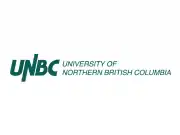Business programs in Canada for international students
- Advantages of Business Education in Canada
- Formats and Levels of Business Programs in Canada
- Top Business Universities in Canada
- How to Apply for Business Programs in Canada
- Tuition Fees for Business Programs in Canada
- Scholarships and Grants for Business Programs in Canada
- Language of Instruction and Preparation for Business Programs in Canada
- Career Prospects After Business Education in Canada: Investments and Benefits
- Frequently Asked Questions

Bachelor of Commerce - Marketing
University of Northern British ColumbiaDevelop a solid understanding of all aspects of business, including accounting, finance, and business information systems.
You will delve into marketing in your later years, with courses in behavioral marketing, strategic marketing, and marketing research.
Electives available include…

Bachelor of Arts - Economics
University of Northern British ColumbiaEconomics studies consumers, households, corporations, government, and non-profits. How successfully these sectors interact affects the economy and our quality of life. Our program teaches you how social, political, cultural, and technological forces affect the economy, equipping you to analyze global…

Bachelor of Commerce
Memorial University of NewfoundlandFor students seeking flexibility, Memorial's bachelor of commerce (B.Comm.) programme is suitable. It enables students to gain the knowledge needed for a career in business while tailoring the pace and location of their education.
- 40 classes (120 credit hours)
- Options…

Bachelor of Commerce (Co-operative)
Memorial University of NewfoundlandWith Memorial's bachelor of commerce (co-op. ), you may combine fascinating classroom study with real-world business experience. Students alternate academic semesters with work placements in industry, government, or private organisations to put classroom learning into practise and gain practical skills…

Bachelor of Arts - Economics
Memorial University of NewfoundlandEconomics is a broad science that studies and manages the production, distribution, and consumption of goods and services. Economics provides us with the analytical tools to comprehend how prices are established, why some people are unemployed, why interest rates rise and decrease, and why products…

Master of Business Administration
Memorial University of NewfoundlandFull-time and part-time students can enrol in a regular 20-course MBA programme. It is intended to train highly prepared students to become executive decision-makers who understand their operating environment, particularly its international elements. The primary goals of the MBA programme are to:
- develop…

Master of Arts - Economics
Memorial University of NewfoundlandEconomics is a broad subject. We provide applied economics courses at Memorial University in a range of fields, including fisheries, petroleum and mining, forestry, environmental, international, monetary, public sector, welfare, labour, and health economics. Our 12 full-time faculty members are committed…

Master of Science - Management
Memorial University of NewfoundlandMemorial University is Atlantic Canada's only university that offers a master's degree in management. This research-focused degree, available at the Faculty of Business Administration, allows students to build strong research skills as well as a diverse skill set that provides a variety of choices…

PhD - Management
Memorial University of NewfoundlandThe Doctor of Philosophy in Management degree is available at the Faculty of Business Administration, where students can cooperate with world-class scholars and participate in a stimulating and supportive intellectual environment. This curriculum is intended to prepare students for jobs in research…

Bachelor of Business Administration
Cape Breton UniversityYou can genuinely go anywhere with a degree in Business Administration. This programme is specifically designed to provide students with core universal abilities needed to excel in any business. A degree in Business Administration provides a solid basis for self-made success. A BBA focuses a broad…
Advantages of Business Education in Canada
Canada is one of the most attractive destinations for business education among international students. The high quality of education, recognized worldwide, along with diverse programs, makes Canadian universities and colleges popular among young people and their parents.
Key advantages of studying business in Canada:
- Internationally recognized diplomas, providing access to jobs in various countries worldwide;
- Modern teaching methods, focused on practical applications and real case studies;
- Opportunities for internships and practical training with leading companies in Canada and globally;
- High level of safety and comfortable living conditions for international students;
- Immigration prospects, including programs for graduates;
- Multicultural environment, fostering intercultural competencies.
Canada regularly ranks among countries with the best living and educational conditions, and its business programs stand out for their flexibility and alignment with real market needs.
Formats and Levels of Business Programs in Canada
Canada offers a wide range of business programs for international students:
Program formats:
- Diploma programs (Diploma, Advanced Diploma) — 2-3 years;
- Bachelor's Degree — 3-4 years;
- Graduate Certificates (Graduate Certificate, Postgraduate Diploma) — 1-2 years;
- Master's Degree and MBA — 1-2 years.
Popular specializations within business programs:
- Management and administration;
- International business;
- Finance and accounting;
- Marketing and advertising;
- Entrepreneurship;
- Logistics and supply chain management;
- Business analytics and data management.
Thus, students can choose the appropriate level and specialization based on their goals and qualifications.
Top Business Universities in Canada
Canada is home to leading universities with high global rankings that offer quality business programs.
| University | Program | Tuition fees for international students (CAD per year) | Global ranking* | Comment |
|---|---|---|---|---|
| University of Toronto | Bachelor of Commerce, Rotman Commerce | from 63,000 | Top 25 | Canada's strongest business school, recognized by employers worldwide. |
| University of British Columbia (UBC) | Bachelor of Commerce, Sauder School of Business | from 62,000 | Top 40 | Known for innovative approaches and partnerships with global companies. |
| McGill University | Bachelor of Commerce, Desautels Faculty of Management | from 55,000 | Top 35 | University with international reputation, campus in Montreal. |
| Western University (Ivey Business School) | Honours Business Administration (HBA) | from 66,000 | Top 100 | One of North America's leading HBA programs with strong alumni network. |
| York University (Schulich School of Business) | Bachelor of Business Administration | from 58,000 | Top 70 | Business school focused on international business and sustainable development. |
*Rankings based on international educational agencies and 2024 research data.
How to Apply for Business Programs in Canada
Application process for business programs in Canada includes several steps:
- Select a program and university;
- Submit application through university website or centralized portals (e.g., OUAC for Ontario);
-
Prepare documents:
- High school diploma or degree;
- Academic transcripts;
- Statement of purpose;
- Recommendation letters (if required);
- Resume (for postgraduate programs);
-
Language tests:
- IELTS Academic (minimum 6.5);
- TOEFL iBT (minimum 88);
- Duolingo English Test (accepted by some universities, minimum 115);
-
Additional exams (for Master's):
- GMAT or GRE for MBA and some Master's programs;
- Admission interview — not always required, more common for MBA.
Deadlines are important: Bachelor's applications should be submitted 8-12 months before program start.
Tuition Fees for Business Programs in Canada
Tuition fees vary depending on university and program level:
- Diploma programs — from 18,000 to 25,000 CAD per year;
- Bachelor's Degree — from 30,000 to 66,000 CAD per year;
- Postgraduate programs — from 20,000 to 35,000 CAD per year;
- Master's and MBA — from 35,000 to 70,000 CAD per year.
Additional expenses:
- Accommodation: from 800 to 1,500 CAD per month;
- Food: from 400 to 700 CAD per month;
- Transportation: from 80 to 150 CAD per month;
- Health insurance: from 600 to 1,000 CAD per year.
Scholarships and Grants for Business Programs in Canada
International students may qualify for various scholarships:
- Government grants — support programs for talented students;
- University scholarships — for academic excellence or leadership;
- Corporate grants and private foundations — support for outstanding students.
Examples of scholarships:
- International Major Entrance Scholarship (University of British Columbia);
- Lester B. Pearson International Scholarship (University of Toronto);
- Desautels Faculty Scholarships (McGill University);
- Schulich Leader Scholarships (York University).
Criteria include high GPA, English proficiency, and leadership qualities. Applications are submitted with main documents 8-12 months before program start.
Language of Instruction and Preparation for Business Programs in Canada
Business programs in Canada are primarily taught in English. High language proficiency confirmed by international tests is required.
For those who don't meet requirements, preparatory programs are available:
- Foundation programs;
- Academic English (EAP);
- Pre-MBA programs.
These courses help improve language skills and prepare for academic requirements.
Career Prospects After Business Education in Canada: Investments and Benefits
Studying business in Canada is not just about earning a prestigious diploma but also an investment in your future that can pay off within years. The strong economy, stable job market, and global recognition of Canadian education give business graduates competitive advantages.
Income Growth: Graduate Salaries
According to leading Canadian universities and analytical agencies:
- The average starting salary for business Bachelor's graduates ranges from 45,000 to 65,000 CAD per year, depending on region and specialization.
- Master's and MBA graduates earn 70,000 to 110,000 CAD per year in entry-level positions, especially in international corporations or finance.
Surveys of top Canadian business school graduates show:
- MBA students with prior work experience and income of 50,000 CAD per year receive job offers with salaries of 80,000 to 120,000 CAD, representing 60-100% growth.
- In sectors like consulting or investment banking, post-MBA income can reach 150,000 CAD per year including bonuses.
ROI Timeline
On average, investments in Canadian business education pay off within:
- 3-5 years for Bachelor's programs, especially if staying to work in Canada;
- 2-3 years for Master's/MBA, given rapid post-graduation salary growth.
These are averages and depend on individual career paths, English proficiency, and internship/career-building activity.
For context: total Bachelor's in business costs 90,000-200,000 CAD for 3-4 years including living expenses. With 50,000-70,000 CAD starting salaries, ROI is achieved in 3-5 years, especially with career advancement.
Employment Statistics
Canada has high business graduate employment rates:
- Over 85-90% of Bachelor's graduates find jobs within 6 months;
- 95% of MBA graduates are employed within 3-6 months;
- About 70% of students receive job offers before graduation through internships.
Universities actively collaborate with employers through career centers.
Top Specializations and Employers
Most in-demand fields:
- Financial analysis and banking;
- Consulting;
- Project and operations management;
- Business analytics and data;
- Marketing and digital communications;
- Entrepreneurship and startups.
Top graduate employers:
- Deloitte, EY, KPMG, PwC — consulting/audit firms;
- RBC, TD Bank, Scotiabank — major banks;
- Shopify, IBM, Amazon Canada — tech/e-commerce;
- BMO, CIBC, Manulife — finance/insurance.
The Post-Graduation Work Permit (PGWP) allows graduates to work in Canada for up to 3 years, enhancing employment and immigration opportunities.
Frequently Asked Questions
1. Can international students apply to Canadian business programs right after high school?
Yes, Canadian universities accept international students after secondary school if they meet academic and language requirements.
2. What language tests are required for business programs in Canada?
IELTS Academic, TOEFL iBT, or Duolingo English Test (if accepted by the university).
3. Is it difficult to get a business scholarship in Canada?
Scholarships are available but competitive, requiring excellent academics and English proficiency.
4. What are the tuition fees for business programs in Canada?
From 18,000 to 66,000 CAD per year depending on program level.
5. Which Canadian universities are best for business?
Top include University of Toronto, UBC, McGill, Western, and York University.
6. Are interviews required for business programs in Canada?
Usually not for Bachelor's, but often required for MBA and some Master's.
7. What are the employment prospects after business studies in Canada?
Excellent: graduates are recruited by top companies with access to internships and career fairs.
8. Can students work while studying business in Canada?
Yes, up to 20 hours/week during studies and full-time during breaks.